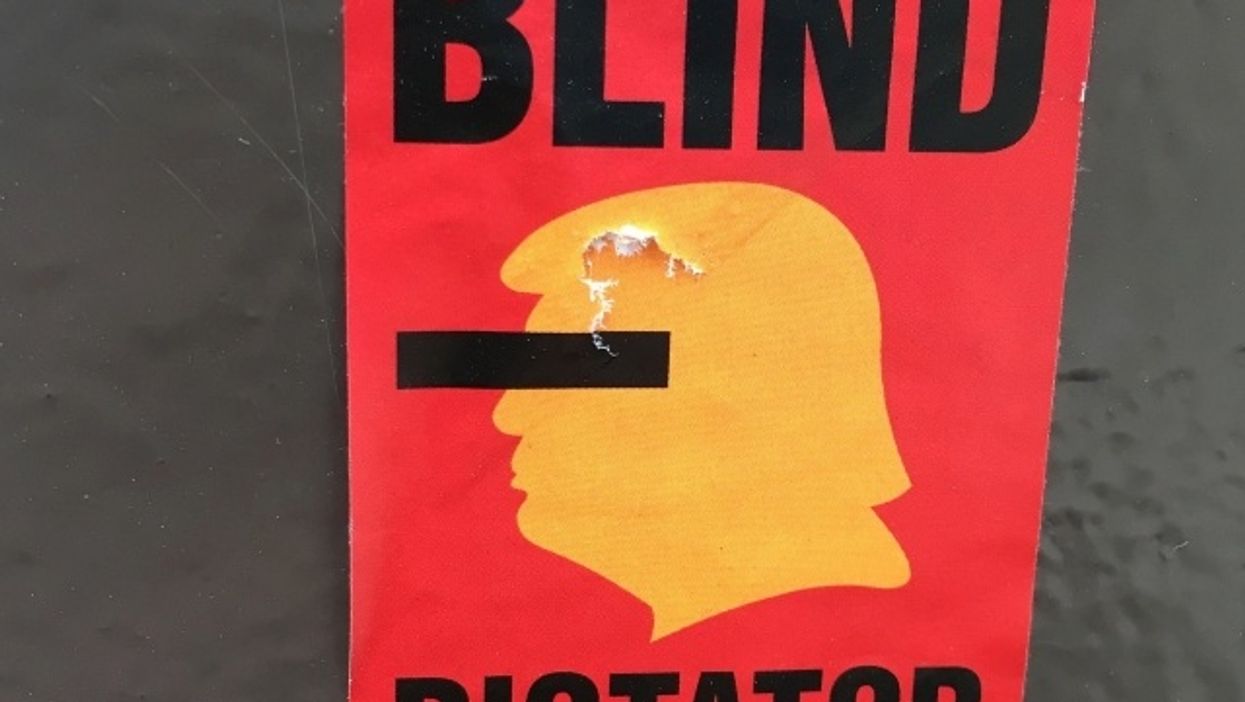Trump Asks Supreme Court To Help Him Hide January 6 Documents

Two weeks ago, Donald Trump was denied in his attempt to keep documents related to January 6 from being released to the House select committee when a three-judge panel of the U.S. Court of Appeals in Washington, D.C. rejected his appeal. However, in that ruling, the judges delayed implementation of the ruling for two weeks in order to give Trump the opportunity to take his case before the Supreme Court. As expected, Trump played out the clock before finally making that appeal Thursday morning.
As The Washington Post reports, Trump has quite a hill to climb. His appeal is asking the Court to set aside a unanimous ruling at the appeals court level. That ruling only confirmed a ruling from the district court. The appeals court panel was particularly blunt in their evaluation of Trump’s claim that he enjoyed the privilege to protect his communications, even though he was no longer in office, and even though the document related directly to a violent insurgency.
“The events of January 6th exposed the fragility of those democratic institutions and traditions that we had perhaps come to take for granted. In response, the President of the United States and Congress have each made the judgment that access to this subset of presidential communication records is necessary to address a matter of great constitutional moment for the Republic,” wrote the three appeals court judges.
In most circumstances, a case that’s been rejected at both district and appeals levels has little chance of even being heard by the Supreme Court. However, this is far from a normal case.
Trump made extraordinarily broad claims of executive privilege while in office. Acting on Trump’s orders, members of Trump’s White House staff, members of his campaign team, and even low-level workers at agencies whose conversations were many stages removed from Trump refused to provide testimony to Congress. On multiple occasions, members of the executive branch under Trump refused to provide information to Congress on the basis that Trump might, at some point in the future, decide that the information was privileged. This included information that had been, in the past, regularly provided to Congress.
When the House Select Committee issued a request for both documents and testimony, Trump attempted yet another expansion of privilege, claiming that, as a past executive, he still holds the ability to restrict access to communications he conducted. That includes communications with White House staff, members of the Justice Department, campaign workers, outside advisers … everyone. In addition, multiple members of Trump’s staff or campaign—including former chief of staff Mark Meadows and self-described “dirty trickster” Roger Stone—have cited Trump’s claim in refusing to testify to the committee.
In recent cases where there were investigations of actions taken under a former president’s authority—such as Iran-Contra under Reagan, or the documents that proceeded the 9/11 attacks under both Bill Clinton and George W. Bush—no claims of privilege have been raised.
Both the district and appeals court made it clear that, as the sitting executive, only President Joe Biden determines what documents enjoy privileged protection. And, with both Biden and the committee has determined that these documents are vital to determining the truth about events on January 6, Trump has no authority to block their release.
There is the possibility that the Supreme Court will simply refuse to take up the case. However, it seems likely that the Court’s conservative majority may want an opportunity to redefine executive privilege in a way that benefits Trump. The court could agree with Trump outright or could rule that the request from the select committee is “too broad,” or provide a basis for Trump to return to a lower court and restart his appeal process.
Even though the Supreme Court set definite limits over the use of executive privilege during Watergate, the evident lack of concern about precedent by the current Court may mean this is a time where those rulings get revised. Or obliterated.
A likely outcome may be one similar to that of when Trump sought to refuse Congress access to his tax documents. Trump lost that case at the district court, before a single judge at the appeals court, before the full appeals court, and before the Supreme Court. However, a year and a half after losing that case at the top court, the documents are still not available to Congress.
Reprinted with permission from Daily Kos








